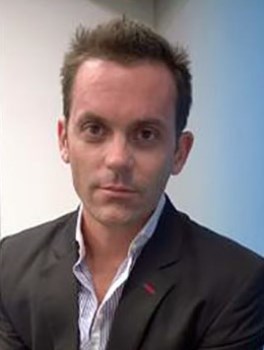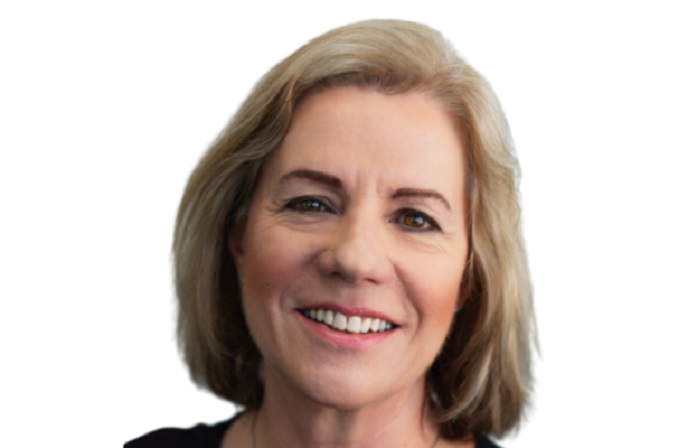
FST Media: What are your priorities for the next 12 to 18 months?
de Ferrieres: Insurance industry, in general, and AXA in Asia, in particular, are mainly underwriting-focused, process centric and risk-obsessed. The notions of customer, value proposition, and willingness to pay the service provider come only second. As the competition gets stiffer we need to refocus on priorities to adapt our organisation and to become more marketing-oriented.
We have two main priorities, which aim at making our business more customer-centric and service-oriented.
The first one is mainly focusing on digitalising our business. It includes revisiting the design of our products to make them more customer friendly, easy to understand, and appropriate to buy online. Putting our products online will help us target more customers and increase the range of segment and profiles. It will also help create a true customer journey with AXA as we will focus in designing a comfortable and dynamic user experience.
Lastly, through digital we will be able to tap on different and new distribution channels that were very difficult or costly in the past. We all also revise and upgrade our processes and overall guidelines to facilitate the business of our partners.
FST Media: What do you think will be the next big thing in the insurance industry?
de Ferrieres: The industry must realise how critical it is to move not only fast but also and foremost now. I foresee two big things that could impact positively on the insurance industry:
Firstly, the impact of the digital in our day-to-day life should be a source of inspiration for our own transformation. Our attitude towards connected devices, frequency of access, the diversity of usage, our obsession to be connected should tell the insurance industry that it has to [have a presence in digital] and have it now. We have to be there when our potential customers use their mobile or tablet to buy travel, check health, search for a new house, transact online, geo-localise, share feelings, needs and frustration. The digital opportunity is the brand new world for us. It is also a capital-intensive industry, and is compliant and conservative at the same time. We will have to learn how to become agile and flexible, adaptive, and evolve before even thinking of becoming innovative if we want to survive.
The second big thing is data. The essence of our industry is made on data in order to provide price to our client – age, gender, conditions, profiles among other data. We are characteristic data miners but we need to move to a behavioural data expertise. We need to collect, steer and score data that will help us understand purchasing and spending behaviour, social attitude and habits. It was something that we missed for the past 25 years because it was very difficult to collect. The fact that our life is now connected gives us the opportunity to change and start to analyse different data.
Yet we are late on such moves. Our IT infrastructure is and remains very process and product centric. We have few systems that collect customer behavioural data. We will have to invest and do it fast. If we do not, other industries that specialise in data mining, like Facebook, will very soon take over the opportunities that we have as an insurer.
FST Media: What role does data and analytics play in ensuring AXA meets customer demand for personalised products?
de Ferrieres: Accurate and appropriate data are the base of our business. Our core business is to provide an appropriate product and pricing according to the customer’s experience, customer profiles, and customer benefits. Data is critical.
Behavioural, social and lifestyle data is data we do not have. Yet it is crucial for us in order to redesign and segment our offers. With such data our product will be more personalised and fit to our targeted profile. From focusing on basic information like age, gender, assets profile, we will have a more dynamic view once we know who our customers are, how they behave, spend and live.
The dilemma is to get not only the data but also the right to use them, score and analyse them. Regulation from country to country differs and we see a real focus in strengthening the data protection act.
Knowing the constraints, we see great opportunity in dealing or partnering with online and social companies to collect data according to regulator guidelines.
FST Media: What role will wearable technology play in the insurance industry, as wearable devices like Google Glass, Smartwatches and fitness wristbands enter the market?
de Ferrieres: If you look at the mobile devices that exist today and of the future, the insurance industry could make a great deal to boost business and revolutionise product infrastructure.
They focus on health, lifestyle, and behavioural patterns. They propose to monitor behaviour, analyse risks, recommend actions and optimise our experience. The insurance industry could develop a joint product linked to the connected devices. These products would be personalised and adapted to the needs of our customer. From a risk-based product [perspective], we would shift the paradigm into telematic, geo-localised and pay-as-you-use insurance product. We would also be better in assessing our customers and provide what suits best according to their social, mental, physical conditions and lifestyle.
We have launched few initiatives that focus on monitoring driving habits through apps and reward good drivers. In the future, we should be able to set a connected product that provides health conditions targets – BMI management, weight loss, high blood pressures monitoring. The connected device will be part of the insurance product.
FST Media: How are you leveraging social media to engage the younger generation, who might not be thinking about insurance?
de Ferrieres: Social media can be a powerful tool, but risky if you do not know how to use it properly. It can damage your brand and impact your reputation tremendously if you do not use it properly. Therefore we use it in countries where we are comfortable, where we believe there is enough maturity not to have people to put our brand at risk.
Also where we do leverage on social networks, we try not to sell insurance directly. We focus on providing pedagogic tools, information awareness, training, support and services. Also we focus on overall awareness and engagement by trying to be entertaining, fun and exciting. It is the right way today to attract and enrol the younger generation into our programs.
It is clear for us we are not planning to use social network to directly sell our insurance products. We are more into creating an interest and awareness via key messages and entertaining initiatives.
FST Media: How are you leveraging mobile technology with the success of your Smartclaims app, to deliver personalized and targeted products or messages to your customers?
de Ferrieres: Application must be entertaining, informative and viral if we want it to be successful and spread over quickly. Consequently, we believe we need to reinvent ourselves every time we launch an app. If we want to have an impact, we have to up-grade and make the app lively, and responsive. We believe this is even more important that the true service we provide.
Designing and deploying an app is also a brand awareness and PR initiative. It shows that we are deploying innovative tools, that shows we are in research and development mode.
FST Media: How do you encourage a culture of innovation in your team?
de Ferrieres: I am lucky that I have little to do to encourage my team to innovate. My team is made up of only innovative people, they are not insurance people. They are mainly former entrepreneurs, digital geeks or young dreamers; I believe they are the one inspiring other department. It is them that bring the future of innovation to AXA insurance.
FST Media: What information sources do you consider valuable for your job, and why?
de Ferrieres: We try to move as much as possible away from the insurance industry, to observe what is happening in innovation outside the insurance industry, and we try to make it possible within the insurance industry. The way you utilise people can be very similar to the way you create anything on the internet.
When you want to take out insurance you give your name, your address, your age, health status. It is a very question-oriented and boring way of providing you a price.
At AXA we look at what other industries are doing and we try to adapt that to the insurance industry.
FST Media: What do you consider to be your greatest achievement in your career to date?
de Ferrieres: It is what my team and I have achieved in the past year and keep growing. It is innovating and truly differentiating. I am proud to believe we are considered to be a very imaginative bureau at AXA. We have developed a new concept-based ‘e-skins.’ eSkin is a polymorphic web app that can adapt itself to our partner environment with extremely minor changes. It is a fast design and deployment app focusing on insurance acquisition. It can be plugged to banks or any epartners within two weeks. We started in January last year, and we have reached two million Euros in a year.
We have about five to six banks that have signed up with us so far, and growing.
FST Media: Every leader has a legacy they wish to be remembered for, what is yours?
de Ferrieres: The difference between a leader and a manager, a manager ensures that their staff do the job required, whereas a leader is able to go beyond. A leader inspires and motivates each member of his team to make a company objective a true personal goal.
I hope to be remembered as an innovative person that brought a different perspective to a very conservative and slow moving industry. I try to bring the right mindset in an industry that does not need to progress anymore but rather change dramatically.





